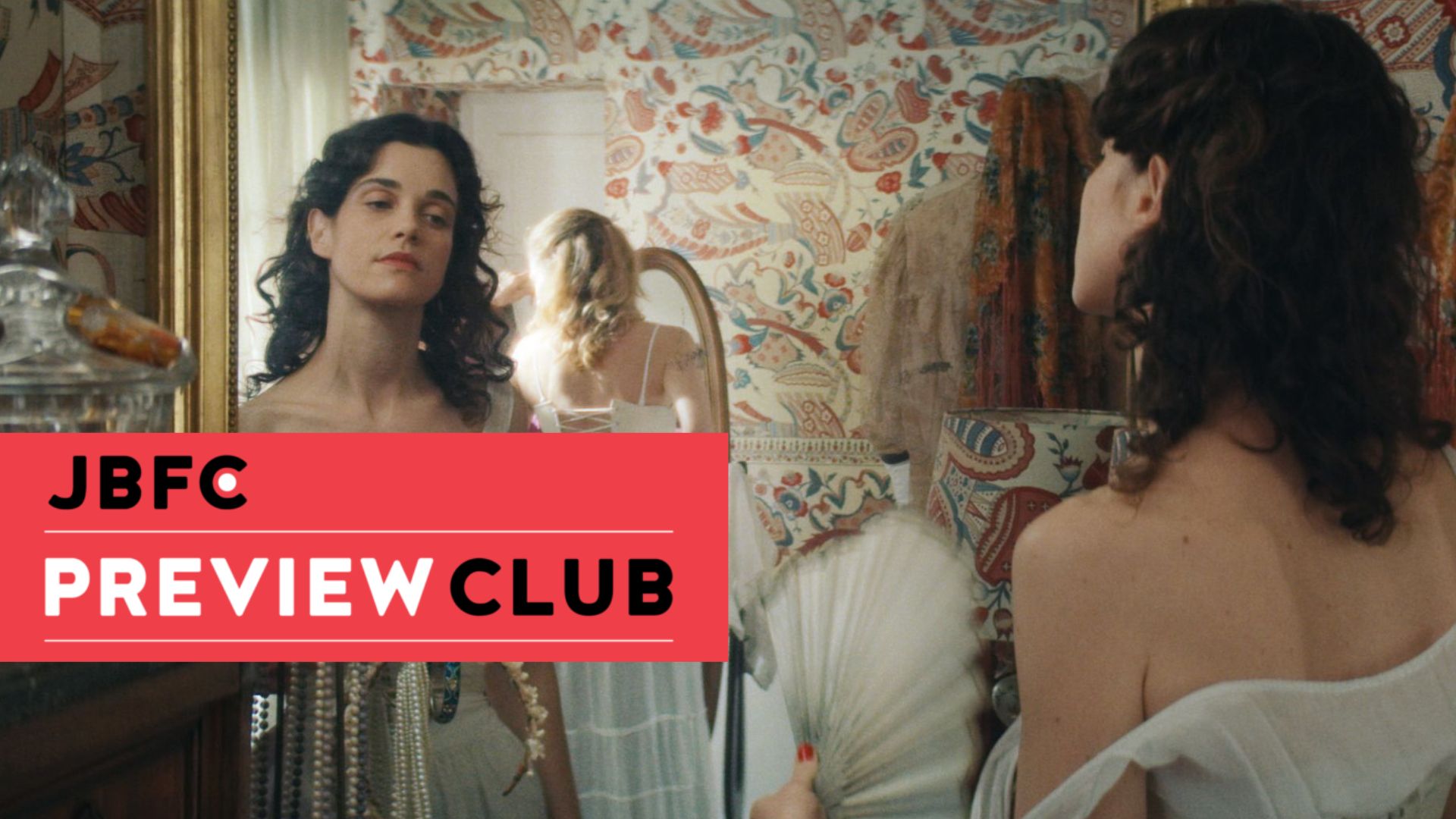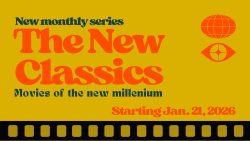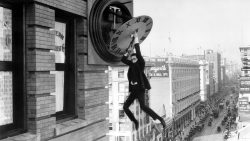Posted May 19, 2025
Jane Austen Wrecked My Life: Preview Club Wrap-Up
As a part of the JBFC Preview Club, subscribers get an exclusive first look at the most interesting new indies and foreign films on our “New Releases” horizon. Every month, JBFC programmers Monica Castillo and Ian LoCascio present a special “secret” screening of an anticipated new film release before it is available to the public. After the screening, our programmers open the floor for a robust audience discussion and send Club members a wrap-up note with behind-the-scenes details and fun facts about the film they just watched.
As a special treat, we have decided to make these notes public. Beware, there may be spoilers!
Preview Club Wrap-up for Jane Austen Wrecked My Life, presented by JBFC Programming Coordinator Ian LoCascio on May 6, 2025:
Hi all,
Thank you for another wonderful Preview Club screening!
Tuesday night’s film, Jane Austen Wrecked My Life, will open at the JBFC on May 23, courtesy of our friends at Sony Pictures Classics—and I hope that you enjoyed it.
The film had its world premiere at the Toronto International Film Festival last year and was written and directed by Laura Piani, a French filmmaker who worked primarily in French television before making her feature filmmaking debut with Jane Austen Wrecked My Life. Laura Piani’s initial inspiration for this film came during her time working as a bookseller at the illustrious English language bookstore Shakespeare & Company in the Latin Quarter of Paris, which is the bookstore where the film’s protagonist, Agathe, works as well.
Shakespeare & Company was founded in 1951 by George Whitman, and the store was named after another legendary Parisian bookstore, also called Shakespeare & Company, which was run by Sylvia Beach and served as a gathering hub for expat writers such as James Joyce, Ernest Hemingway, F. Scott Fitzgerald, and Gertrude Stein. With George Whitman’s incarnation of Shakespeare & Company, he endeavored to emulate the spirit of Beach’s shop and it soon served as its own gathering place for the next generation of expat writers in Paris, such as William S. Burroughs, Allen Ginsberg, Richard Wright, Anaïs Nin, and James Baldwin.
The shop is also known for its residency program where artists, writers, and intellectuals, referred to by Whitman as “tumbleweeds,” are given the opportunity to stay at the shop and sleep among the bookshelves for free. There are only three things which are asked of each Tumbleweed: that they read one book every day, help at the shop for a few hours every day, and produce a one-page autobiography ahead of their departure. There have been thousands of Tumbleweeds who have stayed at the shop over the past 70 years, including some now-famous names such as actors Ethan Hawke and Geoffrey Rush, as well as filmmaker Darren Aronofsky.
Shakespeare & Company’s current owner—Sylvia Whitman, the daughter of George Whitman—is very selective about allowing filmmakers to shoot inside the shop, making it all the more notable that Jane Austen Wrecked My Life opens and closes in that setting. Among its handful of previous on-screen appearances, Shakespeare & Company was featured in Woody Allen’s Midnight in Paris, but I think its most memorable appearance comes in Richard Linklater’s 2004 film Before Sunset, where the film opens with the character (played by former Tumbleweed Ethan Hawke) giving a book talk at the shop. If any of you ever find yourselves in Paris, Shakespeare & Company is a truly magical place—and I highly encourage you to stop by and browse its shelves.
In addition to the influence of Shakespeare & Company, filmmaker Laura Piani credits the many wonderful art-house cinemas in Paris’ Latin Quarter with developing her passion for cinema. She has named the great German-American filmmaker Ernst Lubitsch as a primary influence on Jane Austen Wrecked My Life, with his seminal romantic comedy The Shop Around the Corner feeling like an especially prominent point of reference.
In The Shop Around the Corner, the central dynamic between Margaret Sullavan’s Klara Novak and Jimmy Stewart’s Alfred Kralilk follows a similar trajectory to that of Agathe and Oliver in this film—wherein outward loathing gives way to tenderness and blossoming romance. That same dynamic can also be seen in Jane Austen’s seminal novel Pride and Prejudice, and I do think that there is a pretty clear line between the interests and preoccupations of Jane Austen and Ernst Lubitsch.
Filmmaker Laura Piani has referenced a famous quote from filmmaker Billy Wilder about his mentor Ernst Lubitsch, in which he said that Lubitsch “could do more with a closed door than other filmmakers could do with an open fly.” Similarly, I think Austen’s work, with its quietly radical subversions of the social mores of its time, feels like a notable precursor to Lubitsch. I do, also, think it’s worth noting that, in Nora Ephron’s film You’ve Got Mail, which is an adaptation of The Shop Around the Corner, Meg Ryan’s character’s favorite book is none other than… Pride and Prejudice, and a major plot point of the film hinges on Tom Hanks’ character and his own relationship with that book.
All of this is to say that these works of art, from those by Austen, to Lubitsch, to Jane Austen Wrecked My Life, feel very much in conversation with each other. And, although Jane Austen Wrecked My Life is clearly a romantic comedy which follows the same central framework of countless romantic comedies before it—I think it also functions as a love letter of sorts to great art itself, with the title, Jane Austen Wrecked My Life, being a bit of a sly misnomer.
Piani describes the core of the film as centered on Agathe’s “emancipation,” which “reveals her true romantic, sexual, and creative nature”—and although great art alone is not enough, the film does seem to argue that it is a vital component for a truly full life.
I do think it’s telling that Piani chooses to end the film with a poem, “Path” by Jack Hirschman, recited by the legendary documentarian Frederick Wiseman, who at 95 years old stands pretty firmly among the pantheon of the greatest filmmakers of all time, and is, as Piani has said, a personal idol of hers.
Great art may not be enough to fix everything wrong with the world around us—but it truly is a gift which keeps on giving, and I can’t imagine a life without it.
I hope you enjoyed the film, and I’ll see you next time!
Best,
Ian



